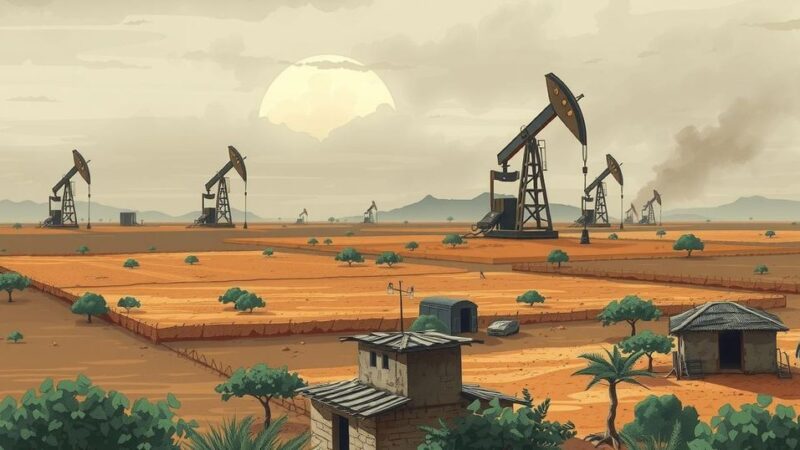During the “Hala Modi” event in Kuwait, Prime Minister Narendra Modi called upon the Indian diaspora to contribute to India’s goal of becoming a developed nation by 2047, emphasizing innovation and green energy. His visit highlighted India’s significant economic progress and the contributions of Indian professionals in Kuwait, while fostering stronger diplomatic and cultural ties between the two nations.
In a poignant address to the Indian community during the “Hala Modi” event in Kuwait, Prime Minister Narendra Modi urged the diaspora to play a pivotal role in realizing India’s ambition of becoming a developed nation by 2047. He emphasized India’s potential as a center for innovation and green energy and invited collaboration with Kuwait, highlighting the significant contributions of the one million-strong Indian community in the region. Modi articulated the historical ties between India and Kuwait as crucial for future partnerships, referencing his historic visit as the first Indian Prime Minister to Kuwait in over four decades.
The Prime Minister acknowledged the ongoing efforts of Indian professionals in various sectors, particularly in education and infrastructure, aiding both nations’ development goals. Modi underscored India’s youthful demographic as an asset in meeting international demand for skilled labor, supported by recently established migration agreements with countries like Mauritius and Germany. He stated, “The developed countries are opening their doors for skilled Indian manpower,” showcasing the global receptiveness to Indian expertise.
During his visit, Prime Minister Modi also highlighted India’s significant economic advancements, which position it as the fifth largest economy globally and emerging leader in technology fields such as fintech and digital connectivity. He remarked on the complementary objectives of India’s “Viksit Bharat” initiative and Kuwait’s “New Kuwait” policy, emphasizing their potential for collaborative success.
In addition to his speeches, Modi toured a labour camp housing Indian workers in Kuwait, showcasing his commitment to their welfare, particularly in light of a recent tragedy involving Indian workers. This visit reflects the Indian government’s dedication to ensuring the safety and well-being of its citizens abroad. Additionally, he met with influential figures who have contributed to the promotion of Indian culture in the Arab world, emphasizing the global appreciation of Indian heritage.
Prime Minister Modi’s visit signifies a stride towards reinforcing diplomatic ties and fostering economic collaborations between India and Kuwait, with a shared vision for mutual prosperity.
The context of Prime Minister Narendra Modi’s appeal to the Indian diaspora stems from the broader ambition of transforming India into a developed nation by 2047, coinciding with the centenary of Indian independence. The Indian government has been actively promoting initiatives aimed at enhancing bilateral relations, particularly with Gulf nations, where a substantial Indian workforce is present. Modi’s outreach aligns with India’s growing economic stature and the global demand for skilled professionals, as well as the historical camaraderie between India and Kuwait, marked by cultural exchanges and economic partnerships.
In conclusion, Prime Minister Narendra Modi’s address in Kuwait served not only as a call to action for the Indian diaspora to contribute towards India’s transformation into a developed nation by 2047 but also highlighted the vital role of Indian professionals in various sectors within Kuwait. His visit underscored the importance of India-Kuwait relationships, technology-based welfare initiatives for workers abroad, and cultural diplomacy, setting a foundation for future collaboration and mutual growth.
Original Source: www.hindustantimes.com






